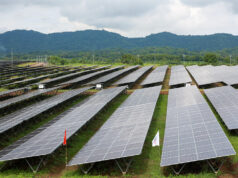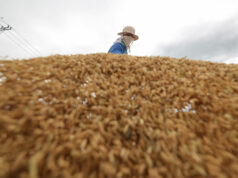Further easing expected from central bank as inflation drops
THE Bangko Sentral ng Pilipinas (BSP) is expected to further reduce its interest rates and the bank reserve requirement ratio (RRR) on the back of easing inflation, First Metro Investment Corp. (FMIC) and University of Asia and the Pacific (UA&P) said.
According to the July edition of “The Market Call” sent to reporters on Thursday, FMIC and UA&P expect a 50-basis-point (bp) cut from the central bank in the second half of the year on “plunging inflation.”
The BSP announced on Wednesday that headline inflation in July could have settled between 2% and 2.8%, citing lower rice and liquefied petroleum gas prices, cheaper electricity rates and a stronger peso, which made imports cheaper.
The floor of BSP’s estimate would be the lowest in more than two and a half years or since October 2016’s 1.8%, while the ceiling compares with June’s 2.7% and the 5.7% in July 2018.
“This will not only provide liquidity to banks, but also spur private lending and exports (via peso depreciation),” FMIC and UA&P said.
The central bank, whose Monetary Board meets on Aug. 8 for its fifth policy review for 2019, has signaled further cuts in benchmark interest rates.
The BSP reduced borrowing costs by 25 basis points (bps) in May, following a cumulative 175- bp hike last year in the face of multi-year-high inflation rates that brought 2018’s average to a decade-high 5.2%.
It also conducted a phased cut in RRR, bringing it to 16% for universal and commercial banks and to six percent for thrift lenders on July 26.
FMIC and UA&P also projected the Philippine economy to have grown by 6% in the second quarter, driven by softer inflation and strong state spending.
“Softer headline inflation and robust government spending is expected to boost Q2’s economic expansion channeled through higher consumer and government spending,” FMIC and UA&P said.
Data released in June brought in “more positive signs of economic recovery,” as inflation plunged to 2.7% and as government spending grew 8.9%.
The report also indicated that economic growth will likely accelerate further for the rest of 2019 on the back of consumer, government and investment spending.
The interagency Development Budget Coordination Committee slashed its 2019 GDP growth assumption in mid-March to 6-7% from 7-8% originally, following the four-month delay in the passage of the 2019 national budget.
The government operated on a reenacted 2018 budget from the start of the year until April 15, when President Rodrigo R. Duterte signed the latest general appropriations bill into law, but vetoed P95.3 billion in appropriations that he said were not in accordance with the administration’s priorities. The veto reduced this year’s national budget to about P3.662 trillion. — Karl Angelo N. Vidal



